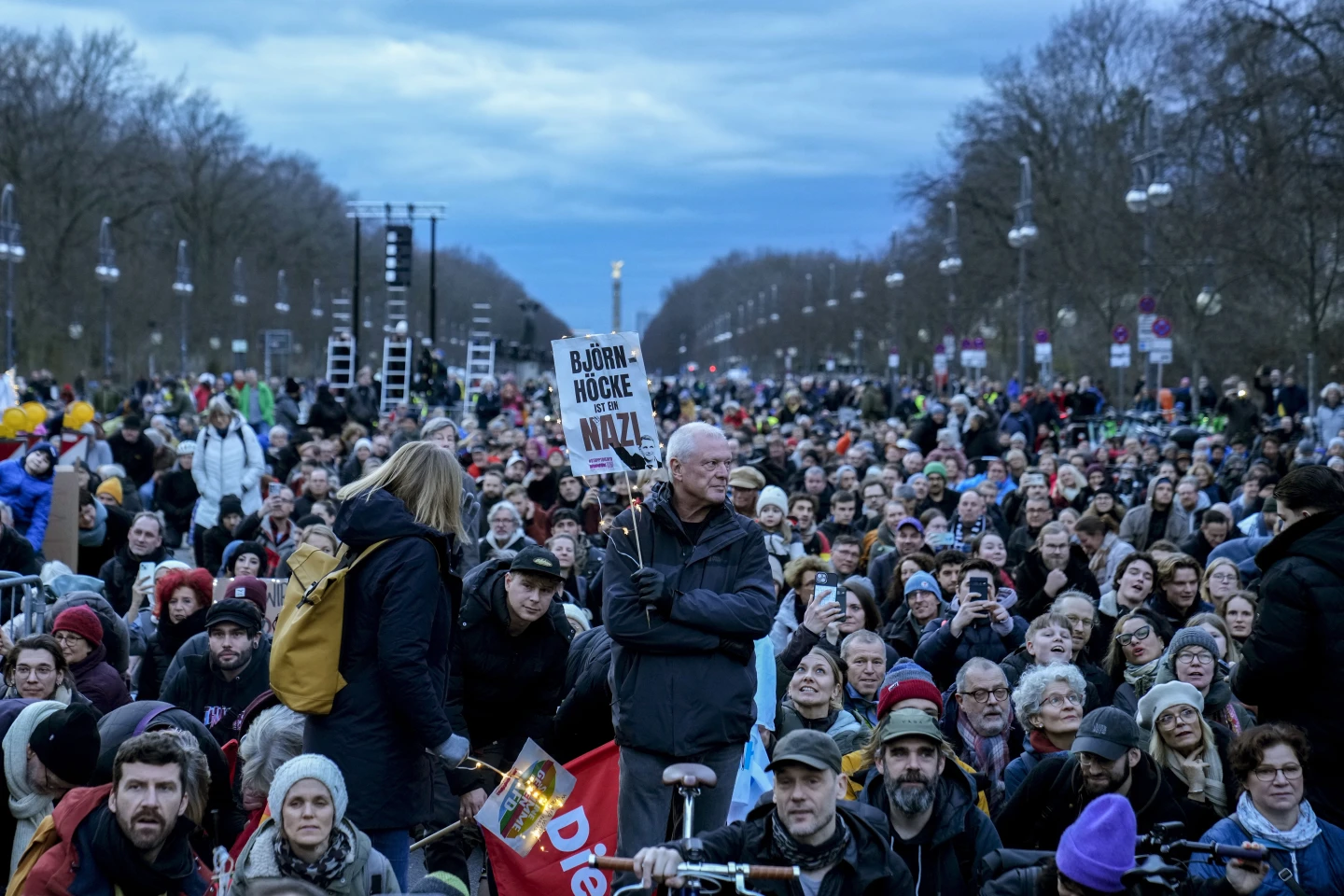Mass Protests in Germany Against Far-Right Rise Ahead of Elections
Berlin: Ahead of Germany's general election on February 23, thousands of people protested on Saturday in Berlin and other cities against the rise of the far-right and anti-immigrant party, Alternative for Germany (AfD).
A large crowd gathered at Berlin's historic Brandenburg Gate, blowing whistles, singing songs, and holding anti-AfD banners. Luisa Neubauer from the climate group “Fridays for Future” said during the demonstration, “Those who incite racism and harm climate protection are not just spreading propaganda—they are putting lives at risk.”
According to police, around 35,000 people joined the protests in Berlin, while another 40,000 protested in Cologne.
Germany, Europe's largest economy, is currently facing a political crisis as Chancellor Olaf Scholz's three-party coalition government collapsed last year. AfD leader Alice Weidel spoke at a campaign event in the city of Halle on Saturday, which was attended by approximately 4,500 people.
Meanwhile, the opposition center-right Union bloc and its chancellor candidate Friedrich Merz lead pre-election polls, followed by the AfD. However, Merz has made it clear that his party will not collaborate directly or indirectly with the AfD.
Merz stated that, if elected, he would ban illegal immigration and ensure the swift deportation of rejected asylum seekers. His comments came after the stabbing deaths of a two-year-old child and a man in the city of Aschaffenburg by a rejected asylum seeker.
Notably, the widespread protests by the German public against far-right and racist politics are not just directed at the AfD but also target other far-right parties across Europe and the administration of former U.S. President Donald Trump.










